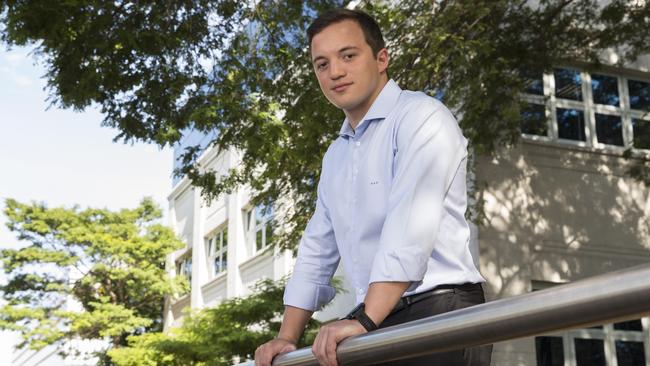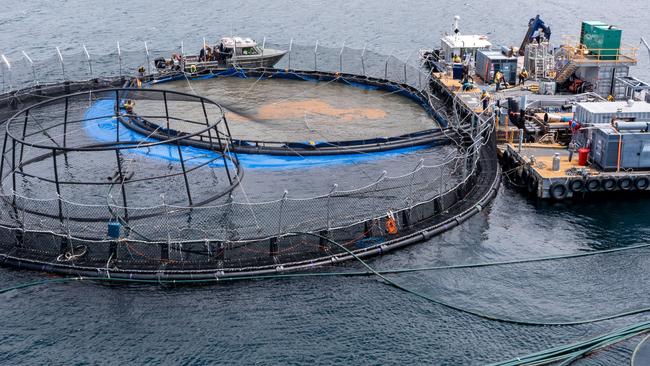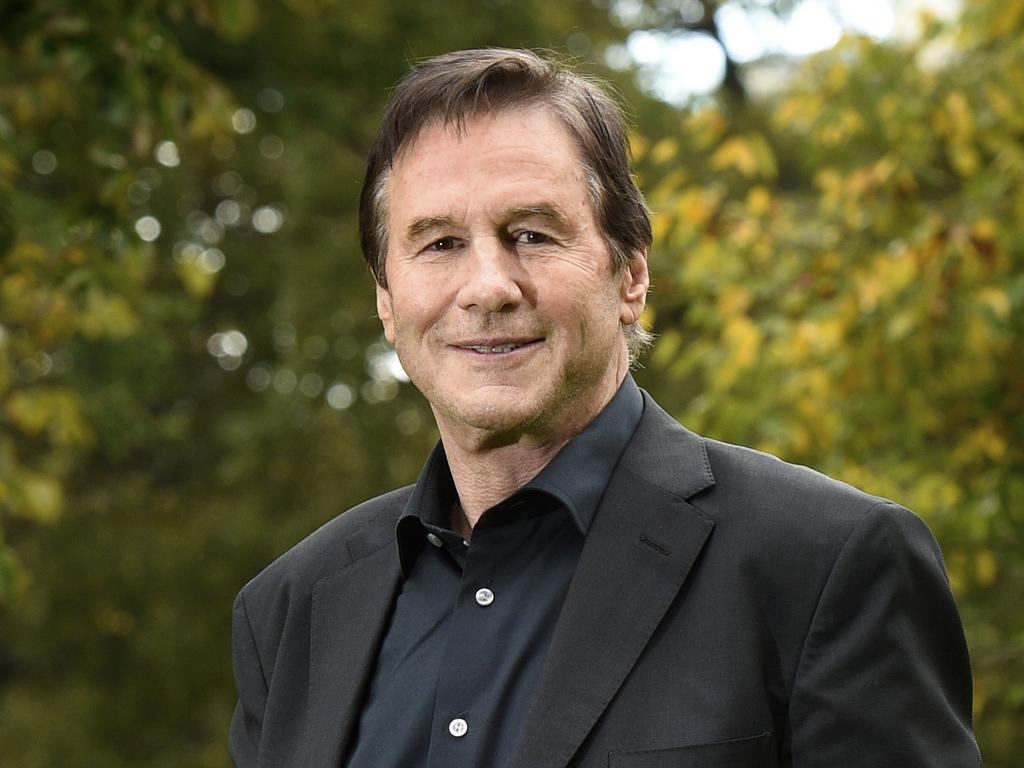Brazil’s JBS Foods to invest in Tasmanian salmon farming industry if government open to change
Salmon farmer Huon, now owned by JBS Foods, says it’s ready to invest hundreds of millions in Tasmania if it can get clarity and certainty from the state government’s long-awaited industry plan.

Business
Don't miss out on the headlines from Business. Followed categories will be added to My News.
Brazilian meat giant JBS Foods is preparing to invest hundreds of millions of dollars into the Tasmanian salmon farming industry, but only if the state government commits to reviewing regulations, which currently makes the cost of farming up to 50 per cent higher than anywhere else in the world.
Earlier this month, the Tasmanian government unveiled its long-awaited Tasmanian Salmon Industry Plan, a document designed to guide the industry’s development over the next decade.
The new 10-year plan, which replaced the previous Sustainable Industry Growth Plan released in 2017, was billed as a “reset” for the industry.
However, a key priority in the plan is making aquaculture companies foot the cost of the government managing the industry from July.
The government will also develop new environmental standards and will encourage, but not compel, companies to switch to farming further offshore. They will also be required to keep baby fish in enclosed hatcheries for longer.
Ahead of appearing at The Australian and Visy’s Global Food Forum in Melbourne on Thursday, Huon Aquaculture chief executive Henry Batista said the salmon farming industry in Tasmania was regulated under 80 instruments, 50 of them emanating from the state government.
“What really concerns us is more policies are time-consuming and makes things harder to do. We are already by far the most expensive country to grow salmon in, 50 per cent higher than anywhere else. It doesn’t just worry us, but any person wanting to invest in Tasmania,” he said in an interview with The Australian.
“It is just about giving us certainty. If we know the polices and what is coming, we are fine, we can work our way around it. Uncertainty is not ideal for investment and if it doesn’t go to Tasmania, it will be a huge loss for the state. This industry contributes more than $700m ayear for the state, and much of this is in regional Tasmania.”

Environmental groups have long accused large-scale salmon farmers in Tasmania of polluting waterways with effluent from salmon pens.
This is despite salmon having one of the lowest carbon footprints of all animal protein sources, requiring low levels of freshwater, land and energy usage.
Mr Batista said any new investment would build upon Huon’s proud history of adopting world leading technology and its track record of innovating to deliver improved environmental and economic outcomes.
In line with the government’s 10-Year Plan, Huon wants to further invest significantly in land-based and offshore salmon operations, particularly in Storm Bay.
“Huon will continue to lead the way in land-based farming. A Huon salmon already spends up to two-thirds of its life on land, and through this investment plan we will seek to expand our land-based facilities. By growing our salmon on land and at sea, we can continue to farm sustainably and employ more local people. Huon is proud to be the only Australian aquaculture farm to hold RSPCA Approved Farming certification,” he said.
“But any investment in this sector takes a long time for approvals. The process is time-consuming. There is significant potential for investment in Tasmania, but we have a huge worry around the increase in costs and regulations in the industry.”
Tasmania’s three salmon producers are all foreign-owned since the last remaining company, Tassal, was bought by Canadian seafood giant Cooke in 2022.
Huon Aquaculture was acquired by JBS in 2021 for $425m after a bidding war with billionaire businessman Andrew Forrest. Petuna was taken over by New Zealand’s Sealord in 2020.

The new foreign players are all looking to address the long-term underinvestment in the sector, which has meant it has failed to reach critical mass.
Huon Aquaculture as a business has been running since 1986.
JBS is the largest meat and food processor in Australia and owns six feed lots, 10 processing facilities as well Primo and Rivalea pork.
Mr Batista, who started working at JBS in 2015 while he was still at school, said he was still adjusting to working in the aquaculture industry rather than value-added meat processing after 10 months at the helm of Huon.
“Salmon farming and processing is more similar to poultry and pork, the logic of the businesses are similar,” he said.
“But farming in a marine environment is very different. For this last 10 months, for me, it is really trying to learn. We are used to farming, but once you go underwater everything looks different.”
In 2017, Mr Batista’s father Wesley and uncle Joesley were caught up in a corruption scandal in Brazil involving the bribing of politicians through their family company J&F.
They are now no longer involved in running the business in Brazil. JBS’s Australian business, long run by Brent Eastwood, has also always operated separately to the Brazilian operation.
Mr Batista said he felt no extra pressure or added scrutiny in carrying the Batista name in business.
“No, I don’t consider it a burden. I am very proud of my family, and they gave their lives for this company. They built this out of nothing,” he said.
“I never had any connection to the problems we had previously. It was a different time. But we have done great things, we employ 260,000 people across the world and invest significantly in our operations. That really makes me proud.”
More Coverage
Originally published as Brazil’s JBS Foods to invest in Tasmanian salmon farming industry if government open to change





